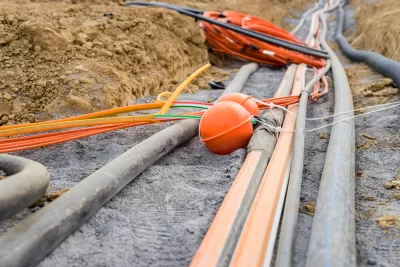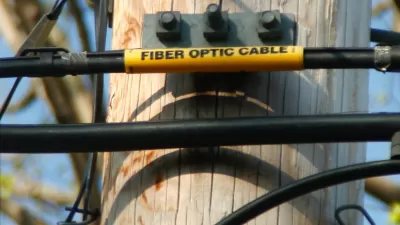More than 300,000 speed tests showed that six of the ten fastest internet service providers were locally run, including the fastest: Sonic in California.

Comcast and AT&T may be the biggest internet service providers (ISPs), but according to a study from PCMag neither crack the top ten fastest. In fact, private ISPs generally lagged behind their not-for-profit local counterparts. PCmag created a metric using upload and download speeds along with line performance to find the best ISPs and discovered six of the top ten spots on their list went to public local ISPs.
"When all regional ISPs were compared side by side, the fastest ISP in America was independent California ISP, Sonic, with a score of 610.6. Sonic has been working with select California communities to leverage their publicly-owned fiber networks,” Karl Bode writes for Vice.
Though local ISPs may lack the resources that mega-ISPs have, other factors allow them to provide faster internet. "Thanks to both corruption and limited competition, US broadband is routinely sluggish, pricey, with comically bad customer service. Frustrated by years of dysfunction, many towns and cities are either building their own broadband networks, developing local cooperatives, or striking partnerships with third party companies to build better networks than are currently available," Bode argues. In most states large ISPs have had success legislating their competitors out of business by making it difficult for municipalities to create ISPs or outlawing them all together.
FULL STORY: Locally Run ISPs Offer the Fastest Broadband in America

Alabama: Trump Terminates Settlements for Black Communities Harmed By Raw Sewage
Trump deemed the landmark civil rights agreement “illegal DEI and environmental justice policy.”

Planetizen Federal Action Tracker
A weekly monitor of how Trump’s orders and actions are impacting planners and planning in America.

Why Should We Subsidize Public Transportation?
Many public transit agencies face financial stress due to rising costs, declining fare revenue, and declining subsidies. Transit advocates must provide a strong business case for increasing public transit funding.

Understanding Road Diets
An explainer from Momentum highlights the advantages of reducing vehicle lanes in favor of more bike, transit, and pedestrian infrastructure.

New California Law Regulates Warehouse Pollution
A new law tightens building and emissions regulations for large distribution warehouses to mitigate air pollution and traffic in surrounding communities.

Phoenix Announces Opening Date for Light Rail Extension
The South Central extension will connect South Phoenix to downtown and other major hubs starting on June 7.
Urban Design for Planners 1: Software Tools
This six-course series explores essential urban design concepts using open source software and equips planners with the tools they need to participate fully in the urban design process.
Planning for Universal Design
Learn the tools for implementing Universal Design in planning regulations.
Caltrans
Smith Gee Studio
Institute for Housing and Urban Development Studies (IHS)
City of Grandview
Harvard GSD Executive Education
Toledo-Lucas County Plan Commissions
Salt Lake City
NYU Wagner Graduate School of Public Service




























